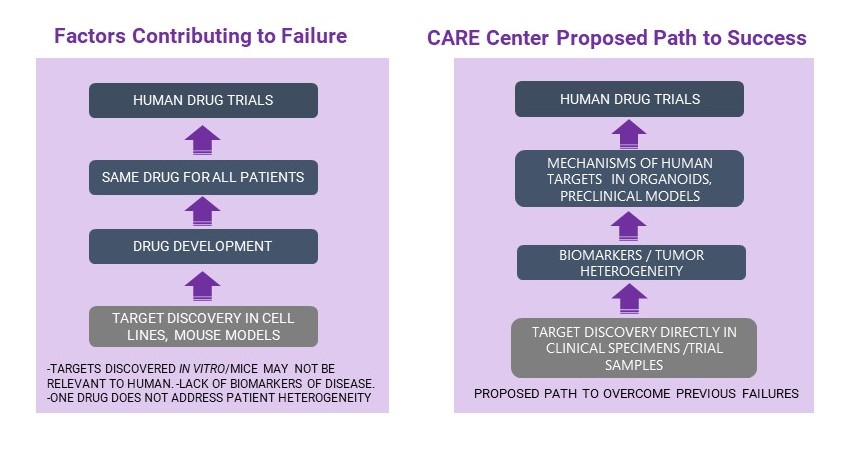‘CARE Centre’ aspires to:
- To become a world-class centre of excellence in cancer research, fostering innovation, and translating scientific discoveries into effective clinical solutions for preventing and managing global and India-centric cancers.
- To advance knowledge and application of AI-driven prediction algorithm towards digital twin creation via training a diverse, skilled workforce and promoting interdisciplinary collaboration.
Major challenges in achieving effective cancer treatments
Cancer is a major global public health problem as it is one of the leading causes of morbidity and mortality. Global incidence rates are estimated at 18 million new cases in 2020, resulting in 9.6 million deaths. According to the National Cancer Registry Programme (ICMR) Report, the cancer burden in India will increase from 1.39 million in 2020 to 1.57 million by 2025 — a staggering 12% increase in 5 years. Notably, 1 in 9 Indians has the likelihood of experiencing cancer during their lifetime.
Major challenges in achieving effective cancer treatments include:
- Diagnosis at advanced metastatic stage and lack of early detection.
- Few diagnostic/prognostic biomarkers of disease.
- Underdeveloped mechanism-based effective targeted therapies.
- Development of resistance to existing therapies.
Furthermore, extensive tumor heterogeneity (intratumoral, intrapatient, and interpatient) constitutes a critical barriers to developing targeted cancer therapies. This has ushered in the era of precision medicine, where treatments are tailored to the biology of individual patients, suggesting that the traditional view of “one size does fit all” needs to be amended to achieve therapeutic success.
Importantly, in the last decade, the landscape of oncology has dramatically changed with the advent of immunotherapy, which, for the first time, has yielded durable and lasting anti-tumor responses, especially for malignancies that were previously difficult to treat. However, despite the unprecedented success, many patients still experience little clinical benefit due to various immunosuppressive barriers in the tumor microenvironment.
CREST CARE Centre’s approach to tackle these challenges
The Centre will build a national and international collaborative network to implement an integrated clinical and preclinical approach with cutting-edge molecular and genomic technologies to dissect the mechanisms of disease progression. The discovery-driven strategy will focus on prevention, early-stage detection, biomarker development, and precision-targeted cancer therapies.
